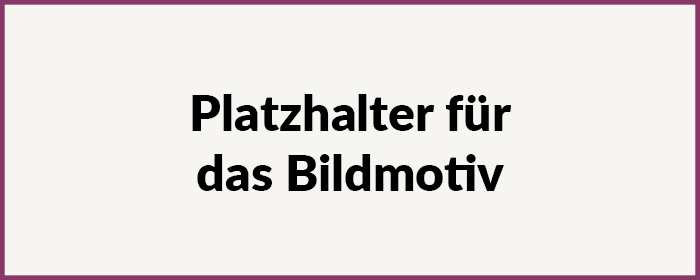Karriere
am Klinikum & Medizinischer Fakultät
Postdocs and PhD Students (f/m/d)

The Institute for Neuromodulation and Neurotechnology at the University Hospital Tübingen, Germany, brings together neuroscientists, engineers, computer scientists, and physicians with a shared mission: to improve the lives of patients with brain disorders through state-dependent stimulation and adaptive neurotechnology for neuromodulation of the nervous system.
About Us:
As a translational research group, we develop innovative neuromodulation tools and collaborate closely with biomedical companies to access cutting-edge neurotechnology. Our work bridges fundamental studies in healthy subjects with clinical research on patient populations, applying insights to refine therapeutic protocols.
Our team is deeply committed to advancing Deep Brain Stimulation (DBS), a transformative therapy for movement disorders and psychiatric conditions. We leverage multimodal neuroimaging and electrophysiological techniques to unravel the complex neural mechanisms underlying these disorders. By integrating this knowledge, we strive to develop and refine DBS therapies that are more precise, effective, and tailored to individual patients.
To learn more about our recent representative work, please refer to the References section below.
Recent Representative work from our group:
- Grimm, F., et al. "Strong connectivity to the sensorimotor cortex predicts clinical effectiveness of thalamic deep brain stimulation in essential tremor." NeuroImage: Clinical 45 (2025): 103709.
- Ferrea, E., et al. "Machine learning explains response variability of deep brain stimulation on Parkinson’s disease quality of life." npj Digital Medicine 7.1 (2024): 269.
- Gharabaghi, A., et al. "Randomized crossover trial on motor and non-motor outcomes of directional deep brain stimulation in Parkinson’s disease." npj Parkinson's Disease 10.1 (2024): 204.
- Frohlich, J., et al. "Sex differences in prenatal development of neural complexity in the human brain." Nature Mental Health 2.4 (2024): 401–416.
- Frohlich, J., et al. "Brain signal complexity and aperiodicity predict human corticospinal excitability." bioRxiv (2024): 2024-02.
- Menrath, D., et al. (2024). Real-Time Spatiotemporal Filtering for Artifact-Free EEG during Electrical Neurostimulation. bioRxiv, 2024-11.
Join us in shaping the future of neuromodulation and deep brain stimulation!
Your Qualification:
- A Master’s degree or PhD in Neuroscience, Cognitive Science, Biology, Computer Science, Engineering, Data Science, or related fields
- Proficiency in statistical data analysis, digital signal processing, and / or programming (e.g., Python, MATLAB)
- Experience in techniques such as:
- Electrophysiology: BCI/BMI, DBS, M/EEG, LFP, MER or EMG
- Intraoperative Electrophysiology (Optional, based on role)
What we offer:
- Access to innovative brain stimulation paradigms for advancing knowledge and developing new therapies
- Opportunities to work with in vivo electrophysiological data from patients and healthy controls
- A supportive research environment with pre-built analysis tools and resources for designing custom approaches
- Cutting-edge technologies to generate impactful results
- A collaborative team united by the vision of enhancing brain research to create more effective therapies
Application Requirements:
- Cover letter (max. 750 words) detailing:
- How you meet the qualifications for the position
- Techniques / methods you wish to be involved in
- Relevant research experience
- How your previous work aligns with the institute’s goals
- Curriculum Vitae (including publication record)
- Names and email addresses of three professional references
- Transcript of Records
- Evidence of English and/or German proficiency (e.g., TOEFL scores)
Please include the following in your application as a single PDF file.
Herr Prof. Dr. Alireza Gharabaghi
Neuromodulation@med.uni-tuebingen.de
Closing date for applications:
06.03.2025
including CV and cover letter under specification of the index number 5790.

For more information, please visit:
www.medizin.uni-tuebingen.de/karriere
Interesse?
Cookies
Notwendige Cookies
CSRF (Cross Site Request Forgery) Protection Cookie
Diese Cookie wird aus Sicherheitsgründen gesetzt und dient zur Abwehr von CSRF.
Authentication-Session Cookie
Wird ein Bewerberprofil erstellt im Zuge einer Erstbewerbung bzw. loggt sich der Besucher in seinem Profil ein im Zuge des Portalbesuches so wird ein Authentication-Session Cookie gesetzt, damit die Navigation funktioniert und Eingaben gespeichert werden können. Dieses Cookie bleibt solange erhalten, bis der Bewerber sich ausloggt oder den Webbrowser schließt.
Culture
Dient der Erfassung der Sprache, in der das Portal aufgerufen wird. Das Cookie wird für einen Monat gespeichert.
Statistische Cookies
Referrer
Wenn der Websitebesucher von einer anderen Seite auf das Bewerberportal kommt (zB der Bewerber wird über den “ApplyLink” / „Jetzt bewerben“-Button für einen spezifischen Job von einem Jobportal weitergeleitet), wird die Information, wo der Bewerber das Inserat gefunden hat, mitgegeben. Der Websitebesucher kann im Falle einer Bewerbung diesen aber auch nochmal abändern. Die Information wird einmalig im Bewerberprofil des Bewerbers gespeichert, sollte eine Bewerbung über das Bewerberportal abgeschlossen werden. Der Cookie wird für 2 Wochen gespeichert.
Ihr Browser ist veraltet!
Bitte aktualisieren Sie Ihren Browser, um diese Webseite korrekt darzustellen. Jetzt aktualisieren

